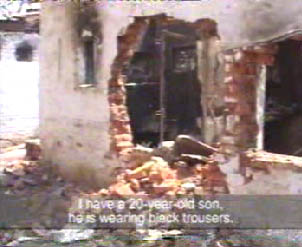Amnesty International
New Delhi: The global human rights watch body Amnesty International has expressed concern over continued rights violation in India. In its latest report covering events from January to December 2002 Amnesty took note of the discriminatory application of law against weaker groups, arbitrary use of force and violence by both state agencies and private citizens, and serious undermining of justice delivery system by state agencies.
Amnesty also took note of “stringent security legislation” like the Prevention of Terrorism Act (POTA) in India, which are used to intimidate the political opposition, rights activists and weaker sections. It also observed that rights groups are stigmatised as “anti-nationals.”
A combination of such legislation and political protection of erring police and security officials conferred “virtual impunity” on them, making it possible for them to get away with serious rights abuses.
No wonder, the erring police officials of 1984 anti-Sikh riots in Delhi, 1993 anti-Muslim riots in Mumbai and 2002 pogrom of Gujarat had been roaming free. “Disappearances” of large number of citizens in Punjab in the 90s and summary executions are still to be investigated and the guilty brought to book, Amnesty said.
Amnesty took note of the connection between the rise of Bharatiya Janata Party (BJP) and anti-minorities violence in India, where “Hindu nationalist groups continued to push their communal agenda--particularly the issue of the reconstruction of a Hindu temple in Ayodhya at the site where a mosque was destroyed in 1992--through violence and the penetration of institutions, leading to an increasing fragmentation of society on religions lines.”
|

|
Amnesty was denied permission to visit Gujarat last July. It also points out that in other areas of conflict, “Security forces continued to enjoy virtual impunity for human rights abuses as a result of provisions contained in special security laws including POTA, as well as in the Protection of Human Rights Act
|

|
The report takes a look at rights violations worldwide in a countrywise fashion. About last year’s horrendous incidents in Gujarat the report observes, “Hindu nationalist groups reportedly had a role in masterminding the violence…. state government administration and police (reportedly) took insufficient action to protect civilians and in many cases may have colluded with the attackers and actively participated in the violence.”
It complains that when Amnesty sought permission to visit Gujarat in July to investigate the violence, its delegates were effectively denied access to the state. It also points out that in other areas of conflict, “Security forces continued to enjoy virtual impunity for human rights abuses as a result of provisions contained in special security laws including POTA, as well as in the Protection of Human Rights Act”.
It notes that “preventive arrest” and detention of rights activist continued by misusing security laws and Criminal Procedure Code (CrPC). “Both the UN Special Rappoteur on the Independence of Lawyers and Judges and the UN Rappoteur on Extrajudicial, Summary or Arbitrary Executions had pending requests to visit India. Neither had been invited to visit the country by the end of the year,” it observes.
Amnesty also takes note of continued discrimination “by police, by the criminal justice system and non-state actors” against Dalits, tribals and Muslims. “The ongoing international campaign against terrorism, as well as the heightened tentions with Pakistan, contributed to the giving of undue legitimacy to various forms of discrimination against the Muslim minority, including violence and the denial of access to justice.”
It says the national Human Rights Commission (NHRC) of India took an independent position on the Gujarat pogrom, but its “recommendations were largely ignored by the Gujarat government”.